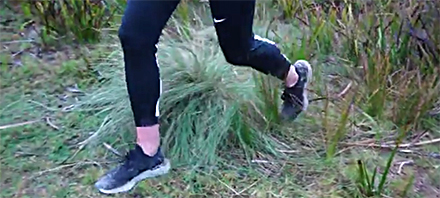There is an old saying that local governments should stick to handling roads, rates and rubbish and that’s it. But instead, in recent years, we have seen an increase in the number of councils across Australia and overseas involved in social, political and environmental causes. Source: Bruce Mitchell
In some cases, this can be a good thing. Councils need to be aware and show concern for ratepayers.
But when council starts stepping into political and environmental causes things often get out of hand.
In the first case councils, particularly large ones, have been politicised for many years. Small-ish regional councils not so much.
It seems the bigger they get the more politicised they become.
But councils probably exceed their authority in many cases when it comes to environmental issues.
Making sure rivers and creeks are not polluted by industries in the council area is admirable, as is ensuring municipal waste is ecologically and responsibly handled is another.
Declaring a council “nuclear free” is probably going a bit far.
Calling on a State Government to halt native timber logging pending resolution of the best approach for the future protection and use of these unique areas is a huge stretch.
Enter Murrindindi Shire Council in northern Victoria which on Wednesday night did exactly that. Unanimously.
The motion was especially silly, unproductive and illogical given the council was told, and presumably accepted, that the logging activities are not being carried out on council land.
The council also acknowledged that the motion was one of advocacy.
So many councillors and their councils in so much of this country do a fantastic, if at times, thankless job.
But to waste council and ratepayer time over something they clearly know little about and had no control over just for some chest-thumping feel-good exercise is beyond the pale and does ratepayers little service.
Meanwhile in Tasmania, when it comes to wasting time, and money, either Sustainable Timber Tasmania has dabbled cleverly in semantics, or the Bob Brown Foundation has deliberately overblown an STT decision to further its own agenda.
Some weeks back the Bob Brown Foundation sought permission from STT to run its North-West marathon takayna Trail through Permanent Timber Production Zone land managed by STT.
STT reportedly write to the foundation saying, “we do not provide land manager’s consent for this event to occur on Permanent Timber Production Zone land”.
An STT spokesman said at the time the decision was made because the foundation was “currently conducting and has a history of conducting unsafe and unauthorised activity on Permanent Timber Production Zone land”.
“The publicly advertised primary purpose for this event is to raise money to support activities hindering the management of Permanent Timber Production Zone land and therefore is not supported by Sustainable Timber Tasmania.”
Fair call.
But it is interesting to note – now and with the benefit of hindsight – that all STT said was it did “not provide land manager’s consent for this event” and that it did “not support” the event.
The foundation read this – rightly or wrongly – as STT saying “NO” and headed off to the Supreme Court this week to get the situation sorted out.
The result: STT told the court on Thursday that the foundation did not need STT’s consent to run the takayna Trail and that a permit was not required.
Sustainable Timber Tasmania later said the organisation had “reaffirmed its position that it does not provide land manager’s consent for the event to occur on Permanent Timber Production Zone land”.
But then said that at no stage has it ever said it would restrict public access to Permanent Timber Production Zone land in this instance, and that remains its position.
Very clever perhaps. STT comes out of the whole exercise looking as though it never really had any intention of blocking the foundation’s protest fun run, and the foundation comes out of the same exercise with nothing really, except presumably an unnecessary and sizeable legal bill and egg on its face. But, with a “win”.
It can be legitimately pondered who really had the win here.







